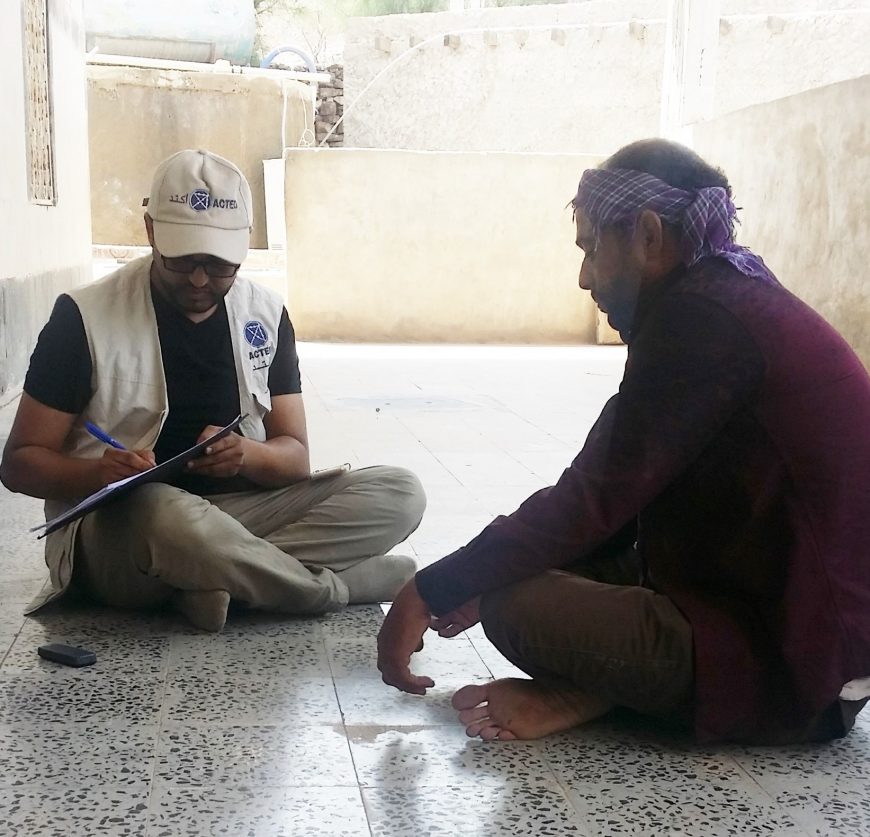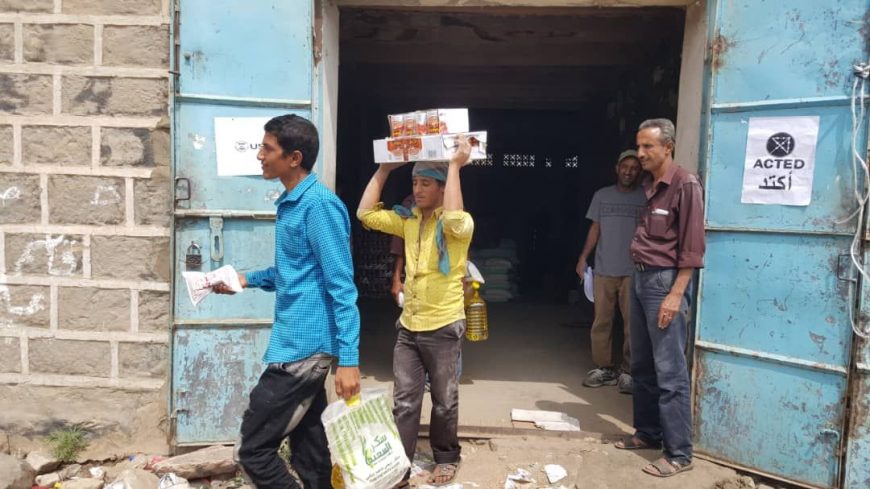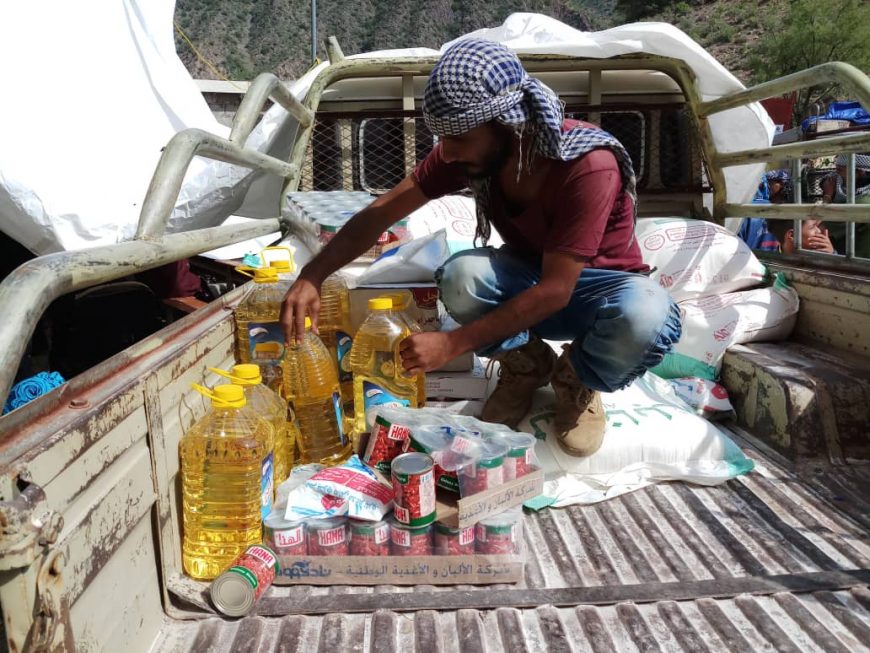The ongoing conflict in Yemen has entered its fifth year, forcing millions of families to flee their homes and leaving over 24 million people in need of basic items like food, water and hygiene supplies. As the geographies of conflict shift across Yemen, some of those displaced in previous waves of fighting have seen a window of opportunity for return to their homes. As the country remains ‘One step away from famine,’ with 70% of the country living in food insecurity, it is vital to support Yemeni farmers so that they can contribute to the production of agricultural goods. Before this can happen though, NGOs have to work to meet the immediate needs of farmers and their families, thus making it possible for them to remain on their land and restart their livelihoods.
In Al Dhale’e governorate, ACTED is providing emergency food assistance to conflict-affected families, providing a basis from which they can begin to rebuild their livelihoods and support Yemen in meeting the food needs of its people.
“There is a farm but there are no jobs or food”
ACTED is working in the Al Hussein district, Al Dhale’e, an area classified in the second to worst category of food insecurity (IPC 4 – Emergency, one level removed from IPC 5 which denotes a ‘Catastrophe.’) The population of just over 60,000 is made up of agricultural households who also rely on collecting and selling firewood, casual labour, and support from relatives in the form of food and remittances. A quarter of the population is in need of emergency assistance due to the impacts of the conflict on livelihoods.
Um Saeed, a grandmother, recently returned to her village in Al Hussein with her son’s family. Her son Saeed, 39, used to work as a daily worker in one of the farms of the district. As the conflict waged on, the farm could no longer operate and Saeed was laid off.

In most of the days, I cannot find any work”, Saeed said. “Really, we struggle to get enough food, especially with continuous increasing in the prices of foods. I have no fixed income. We borrow money and food from neighbors and vice versa. Also, we borrow goods from the store, until we find money to pay it back, sometimes we sell a sheep for this purpose.
Emergency Food Assistance

As part of an intervention supported by USAID Food for Peace, Mercy Corps and Care, ACTED is targeting over 2,000 families like Saeed’s with emergency food assistance. To support the local economy and small businesses, ACTED is providing this assistance both through direct distributions, and in the form food vouchers, to allow families to shop for flour, cooking oil, beans, sugar and salt at locally selected vendors.
The distribution provides a great help for us and saves a good amount of the necessary food for us as a family. It is an excellent program that helps hundreds of families in need. I hope it continue till the situation be better.
Given the high-rate of water borne disease across Yemen which is a result of both long-term (pre-conflict) water scarcity, a lack of sensitization to hygiene/sanitation practices and poor healthcare provision, ACTED also saw fit to carry out hygiene promotion and nutrition sessions among those receiving food/voucher distributions.
Attended the training session taught us new things to be applied in our life, making us consider our behaviors and so that we could develop better ones. We were doing a lot of things in our life the wrong way such as hand washing.

This intervention was made possible through support from USAID:
